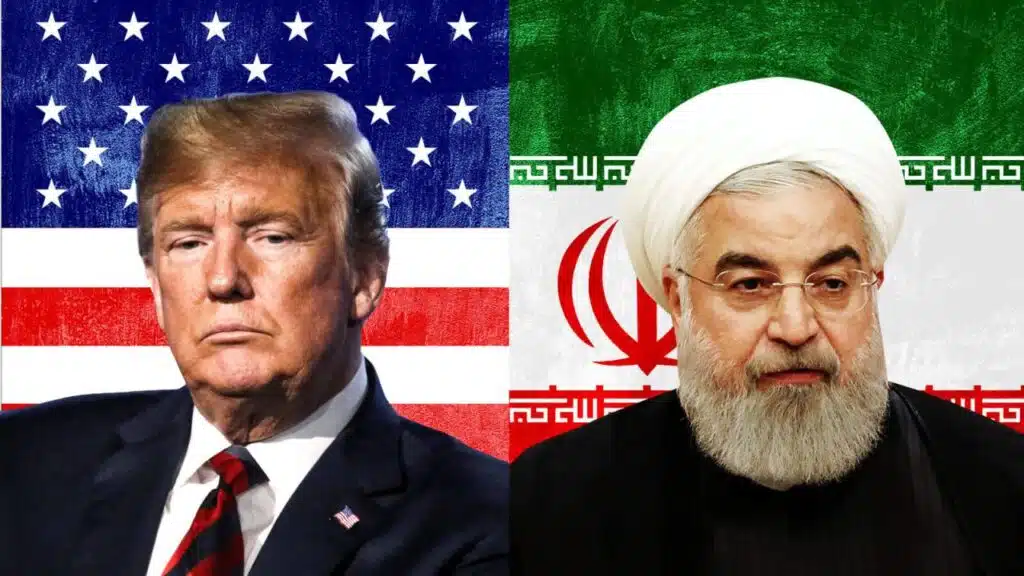
Trump’s Handling of Iran Shows the Discipline and Strategy that has been lacking in Washington for Years
The question of how to deal with Iran in US foreign policy has been a constant challenge for American Presidents. The rogue nation has been a thorn in the United States’s side since the Shah was overthrown in 1979 and the Ayatollahs established a corrupt dictatorship in the Persian country. From the hostage crisis that ensued after the 1979 revolution to the bombing of the US embassy in Lebanon that occurred in 1983, Iran has posed unique challenges to almost every American administration. The corrupt and brutal Iranian regime also remains the world’s largest state sponsor of terrorism as well.
President Trump had every reason to greenlight military action against Iran by the US or Israel when he came back to power earlier this year. The vile Iranian regime had plotted to kill him, and those assassination plans had been publicly disclosed. Still, Trump refused to personalize the conflict with Iran, and he showed unique restraint in engaging the vile Iranian regime for six different rounds of negotiations over the country’s nuclear program. The President had Iran cornered in his first term, with oil prices low and the sanctions crippling the rogue nation’s economy, the Ayatollahs were ready to cut a deal with his administration before the pathetic Biden regime came into power and stopped enforcing the sanctions as oil prices rose for most of the period from 2020 to 2024. Iran had no reason to negotiate with the US during the last 4 years, and the country used oil money to finance terrorist groups such as Hamas, Hezbollah, and the Houthis, against America and our allies.
Trump still refused to take military action when he came back to power earlier this year, and he clearly also held off Netanyahu until, as the President made clear last week, the US realized the negotiations with the vile Iranian regime were going nowhere. Trump used sanctions in his first term, he continued to negotiate this year, and the President only likely approved of the Israeli attack on Iran’s nuclear and other military sites as a last resort. While the US has publicly stated that America had no involvement in the recent bombings by Israel, Netanyahu would not have conducted such a widespread attack without consulting with his close friend and trusted ally in Washington. Trump clearly did not try to talk Netanyahu off his decision to take military action that had obviously been planned long in advance.
Prior to the end of the Cold War, the approach to handling Iran was bipartisan, with both Democratic and Republican administrations maintaining a hardline against the Ayatollahs. The recent initiative by Obama to enter the Iran deal, a horrendous agreement that Iran was never going to live up to, marked a breakdown in this previously bipartisan approach to dealing with the rogue nation. Today, most Republicans oppose the Iran deal Obama entered with the country in 2016, and Trump terminated it upon entering power. Some moderate Democrats opposed Obama’s absurd accord with Iran as well, but most of the opposition to the agreement came from Republicans. Still, even after ending this pathetic agreement, Trump used sanctions in his first term and insisted on negotiating with the Iranian regime this year before giving what likely was tantamount to a greenlight to Israel for the recent bombing.
The President had a clear strategy, he showed restraint and only approved of using force as a last resort, in what was a targeted strike by Israel against Iran’s nuclear sites and some other military ones. While Bush was too willing to use force in Iraq and Afghanistan without even trying diplomacy, Obama was too willing to appease the Iranian regime with his horrific deal. Biden’s approach of easing the sanctions failed too, and Iran used the country’s oil money to destabilize the region over most of the last four years. Trump’s peace through-strength strategy was clearly the best approach, and the 47th President has once again both defied critics and shown the astute chess player he is with this latest chapter in American foreign policy.



